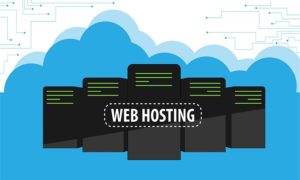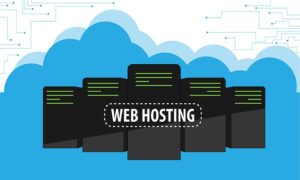How Much Does it Cost to Run a VPS?

Selecting a hosting service isn’t only a challenge to make sure your site loads quickly; it’s also a matter of making sure it’s secure. Keeping an eye on your project’s budget is essential if you want it to stay in the game. As a business owner, you must avoid overspending on your web hosting service at all costs by choosing an affordable managed VPS service.
What Factors Affect the Cost of a Virtual Server?
Shared hosting is by far the most cost-effective kind of hosting. You may pool the system’s hardware resources or physical server with hundreds of other customers for as little as a few dollars per month. Although it’s inexpensive, significant traffic on the server might slow down your site and cause it to go down because so many other people are using the same IP address.
On the other hand, we have the option of dedicated servers. If you choose a dedicated hosting package, you will have exclusive access to a whole physical server.
There is no need to worry about your website’s performance worsening due to the actions of others, and you can be confident that you will obtain the hardware power you desire and more. The only drawback is the cost. To get started, you may expect to pay roughly $100 per month for an entry-level dedicated server.
When it comes to web hosting, VPS is an excellent middle-ground option. The hosting industry is expected to increase at a CAGR of 15.5 percent, with VPS hosting being one of the significant segments. Because numerous hosting accounts may be located on the same physical server, VPS hosting is still reasonably priced. There is no one user to pay for a server’s hefty upkeep costs.
Fewer people are using the same physical equipment, and the technology that powers VPS accounts is more complicated than that of a shared arrangement. As a result, VPS plans are more effective and costlier than shared plans.
What Factors Affect the Cost of a VPS Server?
There are no two VPS plans that are precisely the same. Most hosting firms offer a wide range of services, each with its own unique set of computer resources, features, and set-ups, to serve customers of various financial and technical backgrounds.
- Managed vs. Unmanaged Virtual Private Servers
Having a VPS gives you access to an entire virtual server. This means that the performance will be more predictable and reliable. However, it also necessitates the presence of a server administrator.
Self-managed VPS plans are an option if you are confident in handling them. Your web host may set up a web hosting Cpanel in addition to installing the virtual server and operating system for you. The server is now your responsibility to configure so that you may set up the hosting environment you choose.
Root access is granted, allowing you to customize the VPS’s settings and install new software as needed. You are also responsible for the continuing upkeep. If this sounds like too much effort for you, you may want to choose one of the managed VPS packages.
In 2018, it was estimated that the worldwide managed hosting services industry expanded to over $60 billion. You don’t have to worry about setting up the server yourself with a managed VPS.
Installing updates, configuring the firewall, and keeping a close check on your server are all things your host’s professionals will take care of for you. Managed VPS plans are more expensive than unmanaged ones since the hosting provider’s support staff is more involved.
- Hardware-Related Resources
Perhaps the most noticeable difference between VPS plans is their disk space allocation. It is, without a doubt, what the majority of people focus on. Many new VPS customers are actually switching from a shared plan. They want to know how much more power they’ll have because their websites are becoming more prominent.
Scalability is one of the critical advantages of VPS hosting. By upgrading to a more robust solution, you also get a great deal more flexibility. In some instances, VPS providers allow you to take full use of the unlimited customizability of VPSs.
For example, if your website requires additional processing power, you may easily add another CPU core without altering the RAM or storage capacity. Thus, you avoid paying for resources that you do not use.
- Control panel
A web hosting control panel may be beneficial even on a self-managed virtual server. Setting up firewalls and other security measures, for example, may be simplified by using a control panel.
There is a price to be paid for this ease. If you wish to utilize a popular web hosting panels like cPanel, you’ll have to pay for it. Managing many accounts on the same server can quickly add up in price.
There are several advantages to using a virtual private server to host your website, but you must ensure that you’re getting the correct service at the proper pricing.






